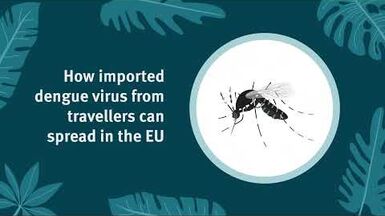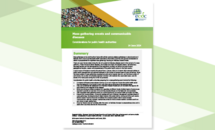Mass gatherings and infectious diseases, considerations for public health authorities in the EU/EEA
Mass gatherings can be anything from high-profile athletic events to religious gatherings or cultural events and festivals. ECDC aims to provide public health authorities in the EU/EEA countries with general considerations in relation to preparedness for organised mass gatherings, focusing on infectious disease threats.
Executive Summary
There are many factors determining the risk of a potential infectious disease event in the context of a mass gathering. These include endemic diseases, the number and origin of expected visitors, risk behaviour, language barriers and the demographics of the population involved, as well as the type of event, geographical location, season and preparedness of the public health system in the host country.
A rapid review of literature covering the period from 1 January 2014 to 31 March 2024 retrieved articles on public health preparedness and reported outbreaks in the context of several types of mass gatherings. Given the large number of mass gatherings organised annually and at regular intervals, and the huge number of participants, the number of outbreaks reported is limited, with relatively few associated cases, even for events which took place during the COVID-19 pandemic.
Considerations for public health authorities preparing for a mass gathering event include the following:
- Commence all-hazard preparedness planning at an early stage and involve the public health sector from the beginning. It is crucial to work with other sectors throughout the planning phase.
- Carry out a national risk assessment on infectious disease threats early on to enable the capacity for early detection and response to be mapped.
- Enhance existing surveillance systems and capacities at different levels. Multiple layers of systems are required to provide an overview of an evolving situation/threat and facilitate risk communication.
- View organised mass gathering events as a good opportunity to arrange health promotion activities.
- Prepare risk communication, community engagement and infodemic management activities ahead of mass gatherings. Participants should ideally receive information before, during and after such events. Several areas of advice should be considered from simple hygiene rules to recommended immunisations, safe sex practices, appropriate protection from extreme weather conditions and how and where to seek medical help.
- Organise ‘lessons learned’ activities after the event, to facilitate changes to preparedness plans and to assist other countries planning for future events.





